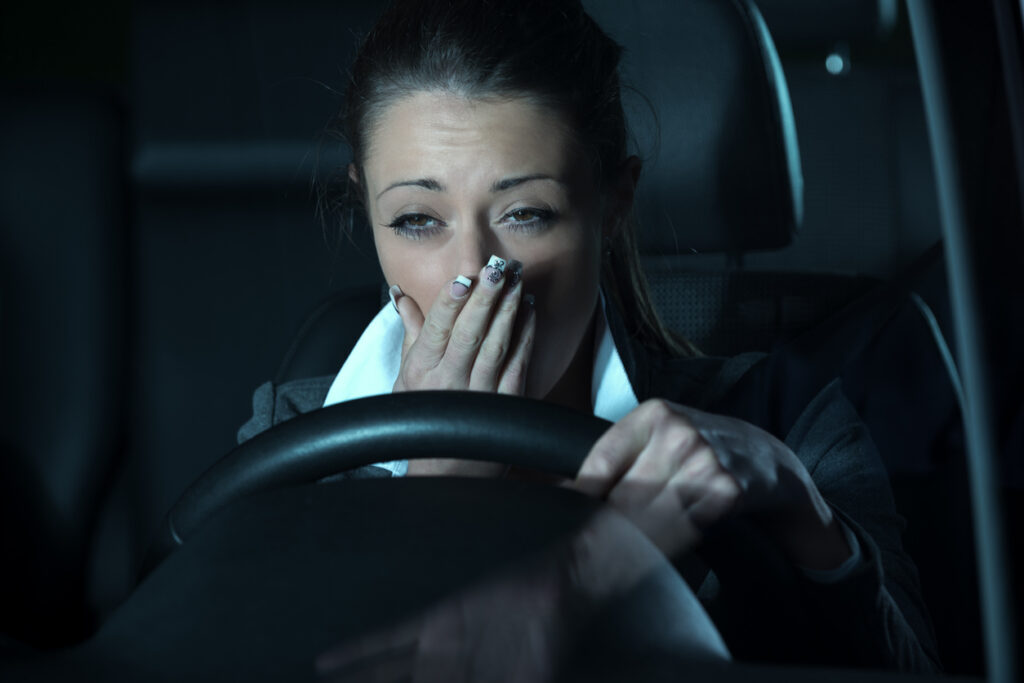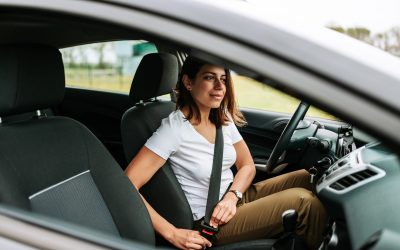Becoming a Better Driver
The fall season is here, which means less daylight hours and more school traffic on the roadways. This season lets refocus on what matters most while driving – our safety and the safety of others. Smart drivers make safer roads, so check out our tips, tools and resources to help you drive smart and make NJ’s roads a safer place for everyone. Find out how you can:
25%
of all crashes in NJ involve drivers who use a cell phone
14,955
lives were saved in one year by seat belts in the US
48
states have laws banning texting while driving

Stay Alert
Use caution when driving. Pay extra attention to crosswalks-watch out for people walking, riding bikes, scooters, and skateboards.

Don’t Speed
Speeding is involved in one-third of all motor vehicle fatalities. Slow down and you could save a life.

Watch out for motorcycles
Keep a safe distance when driving behind motorcycles, and always check for blind spots especially at intersections.

Give yourself extra time
Be prepared for morning and afternoon school traffic. Give yourself extra time to avoid tailgating and rushing to your destination.

Buckle up
Buckling up is the single most effective thing you can do to protect yourself in a crash. Always double check that all your passengers are secure.

Watch for animals on the road
Be aware that animal activity increases in the fall. You are likely to see more animals crossing the roadways, especially at dawn and dusk.
Students are about 70 times more likely to get to school safely if they take the school bus instead of traveling by car. – American School Bus Council
Drowsy Driving
Each year in the U.S, drowsy driving claims the lives of hundreds of people. However, falling asleep at the wheel is preventable. Whether your fatigued from having a bad night sleep, working late or the stress of a new baby – driving while drowsy is dangerous. Here you will find warning signs and tips to avoid driving drowsy to keep yourself and others safe.
Are You Driving Drowsy?
Learn the 5 Warning Signs:
- Having trouble keeping your eyes open and focused
- The inability to keep your head up
- Daydreaming or having wandering, disconnected thoughts
- Drifting from your lane or off the road, or tailgating
- Yawning frequently or rubbing your eyes repeatedly


How to Avoid Driving Drowsy.
6 Tips to Drive Alert:
- Make sleep a priority! – getting adequate sleep (7-8 hours) on a daily basis is the only way to protect yourself against the risks of driving when you’re drowsy.
- Plan ahead – Before the start of a long family car trip, get a good night’s sleep, and take turns driving with someone else if possible.
- Advise teens – to delay driving until they’re well-rested. Many teens do not get enough sleep at a stage in life when their biological need for sleep increases.
- Avoid any alcohol – before driving, it increases drowsiness and impairment.
- Check prescriptions – and over-the-counter medication labels to see if drowsiness could result from their use.
- Avoid peak hours – avoid driving during the peak sleepiness periods (midnight – 6 a.m. and late afternoon). If you must drive stay vigilant for signs of drowsiness.
National Highway Traffic Safety Administration (NHTSA)
Pledge to Share the Road
Each day you’re on the road with thousands of other parents, teachers, mothers, fathers, and kids in all types of vehicles. From cars and trucks to buses and motorcycles – we’re all sharing the road. Join us in becoming a smarter, safer driver.

There’s Always More to Learn.
New Jersey has a variety of special initiatives to help improve the safety of drivers, passengers and pedestrians on our roads. Check out these sites for more great info:
- Click It or Ticket – a statewide initiative to improve seat belt use
- Share the Road – safety facts and resources for motorcyclists and how to share the road
- Drive Sober or Get Pulled Over is a national campaign committed to reducing deaths from impaired driving. Includes impaired driving facts and statistic
- A Guide to Understanding Blood Alcohol Levels from the National Highway Traffic Safety Administration
- Move Over – It’s the law in NJ to move over when you see flashing lights for police, fire and ambulances
- Improve Your Driving – a list of MVC-approved defensive driving courses in NJ that can help you avoid crashes




